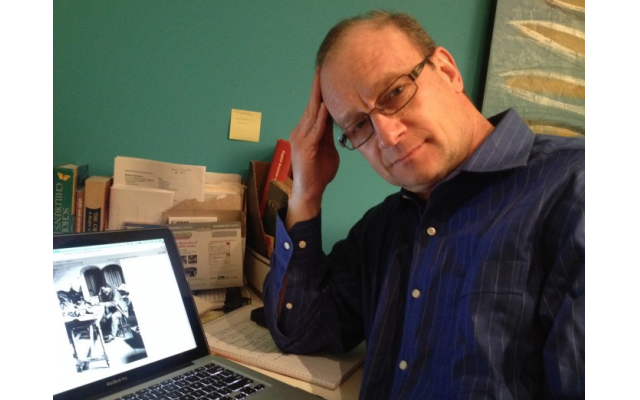Not Quite That Loving Feeling
The Pew report’s findings on the lesser emotional attachment of young Jewish American adults should be of concern to Israel.
Dave Schechter is a veteran journalist whose career includes writing and producing reports from Israel and elsewhere in the Middle East.
The timing of Israel going to war against Islamic groups in Gaza May 10, the day before the Pew Research Center released “Jewish Americans in 2020,” made that report all the more worthwhile reading.
Granted, the Pew survey — based on interviews with 4,718 adults conducted between November 2019 and June 2020 — is a snapshot of a community that numbers 7.5 million. Nonetheless, among its thought-provoking findings were the attitudes of younger Jewish Americans toward Israel.
Simply put, many lack that loving feeling of their elders.
In a recent interview, Rabbi Emeritus Joshua Lesser of Congregation Bet Haverim noted “the reality that more and more younger Jews . . . are feeling less connected to the state of Israel being part of a contemporary Jewish identity.” Uncomfortable as those words may be, Pew offered support for what, anecdotally, has been apparent for a while.
By age, those 18 to 29 reported the lowest level of emotional attachment to Israel, at 48 percent. Attachment increased with age: 52 percent among those 30 to 49, 63 percent for those 50 to 64, and 67 percent for those 65 and older.
Pew also asked which of 10 attributes and activities were essential to what being Jewish means. Only 35 percent of those under 30 responded that caring about Israel was essential to their Jewish identity, while 27 percent said it was not important.
Across all age groups, caring about Israel ranked sixth, behind remembering the Holocaust, leading an ethical and moral life, working for justice and equality in society, being intellectually curious, and continuing family traditions, but ahead of having a sense of humor, being part of a Jewish community, eating traditional Jewish foods, and observing Jewish religious law.
The younger generation, as is its wont, favors disruption of the status quo. For many young Jewish Americans, that includes relations between Israel and the Palestinians, and America’s role in a situation that, if anything, has calcified.
Pew reported that 37 percent of Jewish adults under age 30 took the position that United States foreign policy was too supportive of Israel, compared with 22 percent of the overall sample. Within that cohort, 24 percent thought Israel sincere in its peace efforts (compared with 33 percent in the overall), while 18 percent said the same of the Palestinians (compared with 12 percent overall).
Younger Jewish Americans have grown up aware of a militarily robust and technologically accomplished Israel. While the latter is embedded, literally, in their lives, the former is often associated with policies that many oppose.
This sentiment may extend to future clergy. During the recent war, 100-plus rabbinic and cantorial students, representing a significant portion of students at non-Orthodox seminary institutions, signed a letter titled “Appeal to the Heart of the Jewish Community.”
They wrote: “As American Jews, our institutions tell stories of Israel rooted in hope for what could be, but oblivious to what is. Our tzedakah money funds a story we wish were true, but perpetuates a reality that is untenable and dangerous. Our political advocacy too often puts forth a narrative of victimization, but supports violent suppression of human rights and enables apartheid in the Palestinian territories, and the threat of annexation.” Not unexpectedly, some of their elders criticized the letter as short-sighted and one-sided.
You can tell me that these trends are reflected less among the religiously observant, particularly in the Orthodox community, which continues to grow at a faster rate than American Judaism’s other movements.
You can tell me that Taglit-Birthright and other programs, from summer camps to campus organizations, are producing a generation of Israel-engaged young people.
You can tell me that the Pew report is the proverbial “30,000-foot view” and that on the ground, things are more nuanced and complex.
I won’t contest any of that.
I also have no easy answers to the question of what would engender greater emotional attachment.
There may be a clue in the Pew report: “Feelings of commonality with Jews in Israel are also tied to feelings of attachment to Israel.” Pew reported that 44 percent of Jewish Americans under 30 feel that they have not much or nothing in common with Jewish Israelis. Commonality must be a two-way street, of concern to not only the Jewish establishment in America, but also to Israel, which can look decades ahead and ponder the impact of a less emotionally invested Jewish population in America.




comments